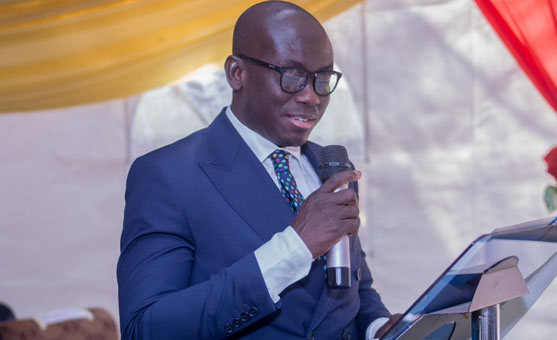Non-custodial sentencing law in the offing – A-G
With the overwhelming numbers of inmates in Ghana’s prisons, the Attorney General, Godfred Dame, has said the government is working on enacting a non-custodial sentencing law.
Community sentence or alternative sentencing or non-custodial sentence allows a court to punish an offender in different ways other than serving a jail term.
The absence of a non-custodial sentencing law means that every breach of the law lands the offender in jail.
Mr Dame said the government was pushing for the enactment of a Community Sentencing law in the interim as measures are put in place to pass a substantive law on Non-Custodial Sentencing.
“We first have to seek policy approval for the enactment of a law and when the approval is given, we have to come back to draft it. After drafting, we have to submit it for stakeholder consultation, and that process is very long. It is time-consuming and resource-intensive as well.”
“After the stakeholder consultation, we will submit it to the cabinet. Cabinet will also consider the bill and changes will be made before the Attorney General forwards it to Parliament for consideration and passage. We are therefore working on the passage of a Community Sentencing law.” He told implementing partners of the Justice Sector Support Activity Project (JSSP).
The Ghana Prisons Service has been advocating a quick passage of the Non-Custodial Sentencing Bill to decongest Ghana’s prisons, but the process has been slow.
Mr Dame was optimistic that the Non-Custodial Sentencing bill would be passed into law before the current parliament’s tenure expires.
Discussions about a Non-Custodial Sentence were revived after socialite Rosemond Brown (Akua Poloo) was sentenced to 90 days to post nude photos of herself and her seven-year-old son.
She was given 90 days for all three charges — publication of obscene materials, engaging in domestic violence, a conduct that in any way undermines another person’s privacy or integrity and engaging in domestic violence, namely conduct that in any way detracts or is likely to detract from another person’s dignity and worth as a human being.
All three sentences are to run concurrently.
A former Deputy Attorney-General Kwame Osei-Prempeh called for a debate to re-examine Ghana’s sentencing regime.
“In the case of Akwapim Poloo, I don’t think there was any need for a custodial sentence. A fine, a caution or community service would have served a better purpose.
“She is a celebrity, and the lesson would have sent a clear message. Imagine Akwapim Poloo sweeping Makola”.
He was concerned that most often, the poor and vulnerable are the victims of long custodial sentences.



